💼 HR & People Skills
Welcome to the final lesson of your Marketing & Management journey!
Here we go beyond planning and strategy — it’s time to talk about people.
Because every project, company, or startup is built not by machines, but by humans.
💬 Story: The School Project Gone Wrong
Two friends, Maya and Ethan, worked on a science project.
At first, everything was fine — until deadlines came closer.
Ethan felt Maya wasn’t helping enough. Maya felt Ethan was too bossy.
They stopped talking for two days.
Then their teacher asked, “Did you try to understand each other’s point of view?”
They realized the problem wasn’t effort — it was communication.
That’s the heart of HR — helping people understand, grow, and work together.
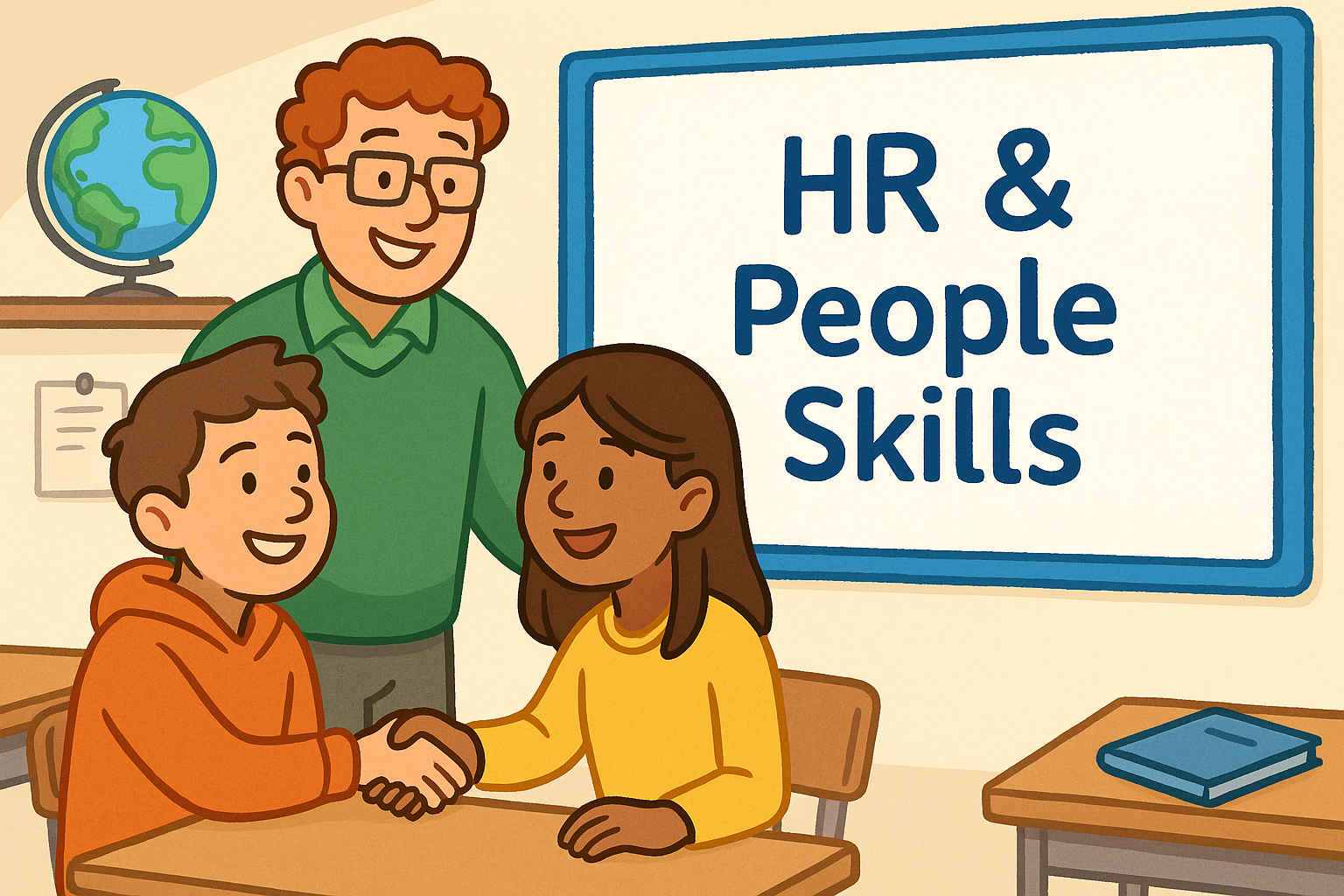
Conflicts often come from misunderstanding, not from bad intentions.
🧠 What Is HR, Really?
HR stands for Human Relations, not just “Human Resources.”
It’s about understanding people — what they need, how they grow, and how they connect.
HR Has Three Superpowers:
- Finding the right people – matching skills and personality to roles.
- Helping people grow – through learning, feedback, and support.
- Creating a good environment – where everyone feels respected and safe.
Even in school, you can see HR in action:
- when someone welcomes new students,
- when a teacher mediates a conflict,
- or when you give fair feedback in a group.
💡 Motivation: Why People Try
Have you ever wondered why some students work hard even without rewards?
That’s the secret of motivation — what moves us to act.
| Type | Description | Example |
|---|---|---|
| External | Rewards from outside | Getting a prize, grade, or money |
| Internal | Personal satisfaction | Learning because it feels good |
| Social | Recognition and belonging | Team success, being appreciated |
🔎 Mini Task: What Drives You?
Write three things that motivate you most.
Are they internal, external, or social?
Understanding your motivation helps you understand others.
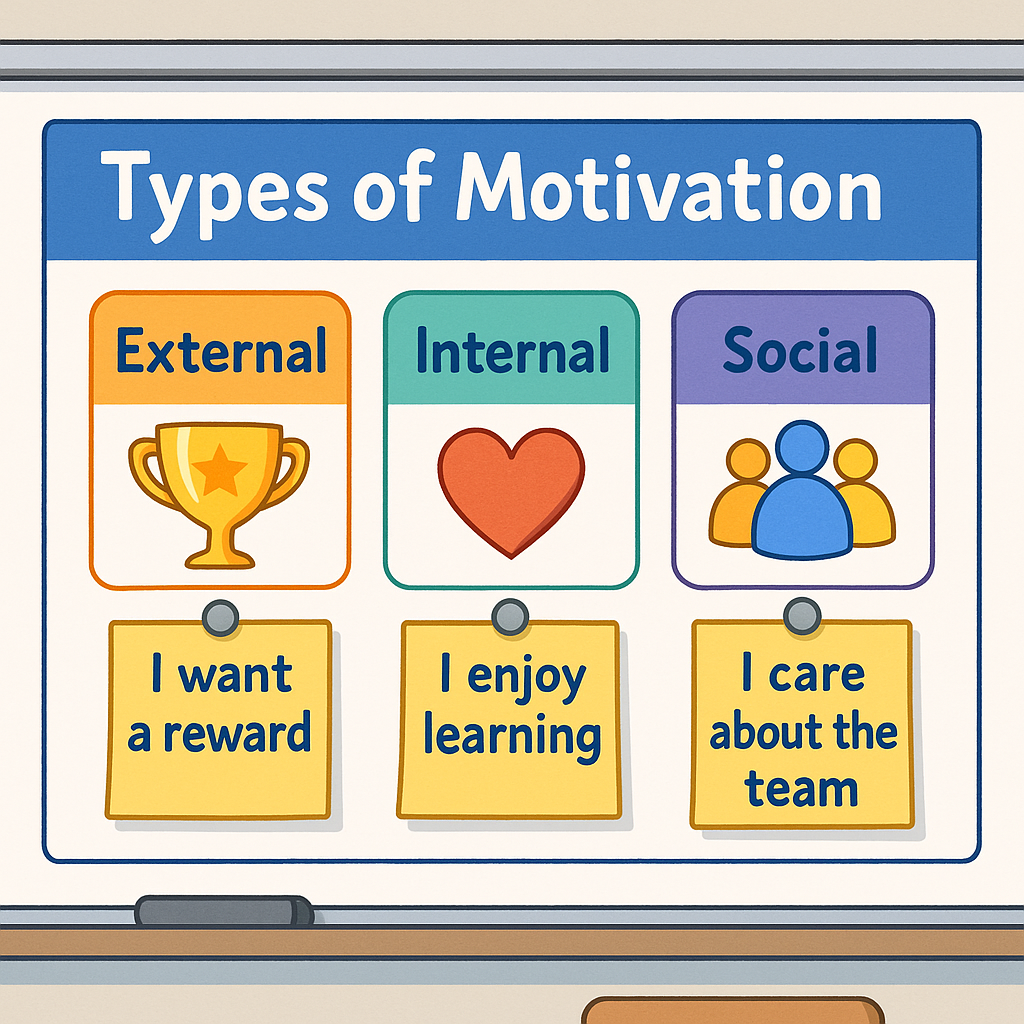
People work harder when their motivation comes from meaning, not just rewards.
🤝 Building Trust
Trust doesn’t appear by magic — it’s built, one action at a time.
The Trust Formula:
Trust = Competence + Empathy + Consistency
| Element | Meaning | Example |
|---|---|---|
| 🧠 Competence | You know what you’re doing | “You always deliver on time.” |
| ❤️ Empathy | You care about others | “You asked if I was okay.” |
| ⏰ Consistency | You’re reliable | “You keep your promises.” |
When all three align, people feel safe to share ideas and make mistakes — that’s real teamwork.
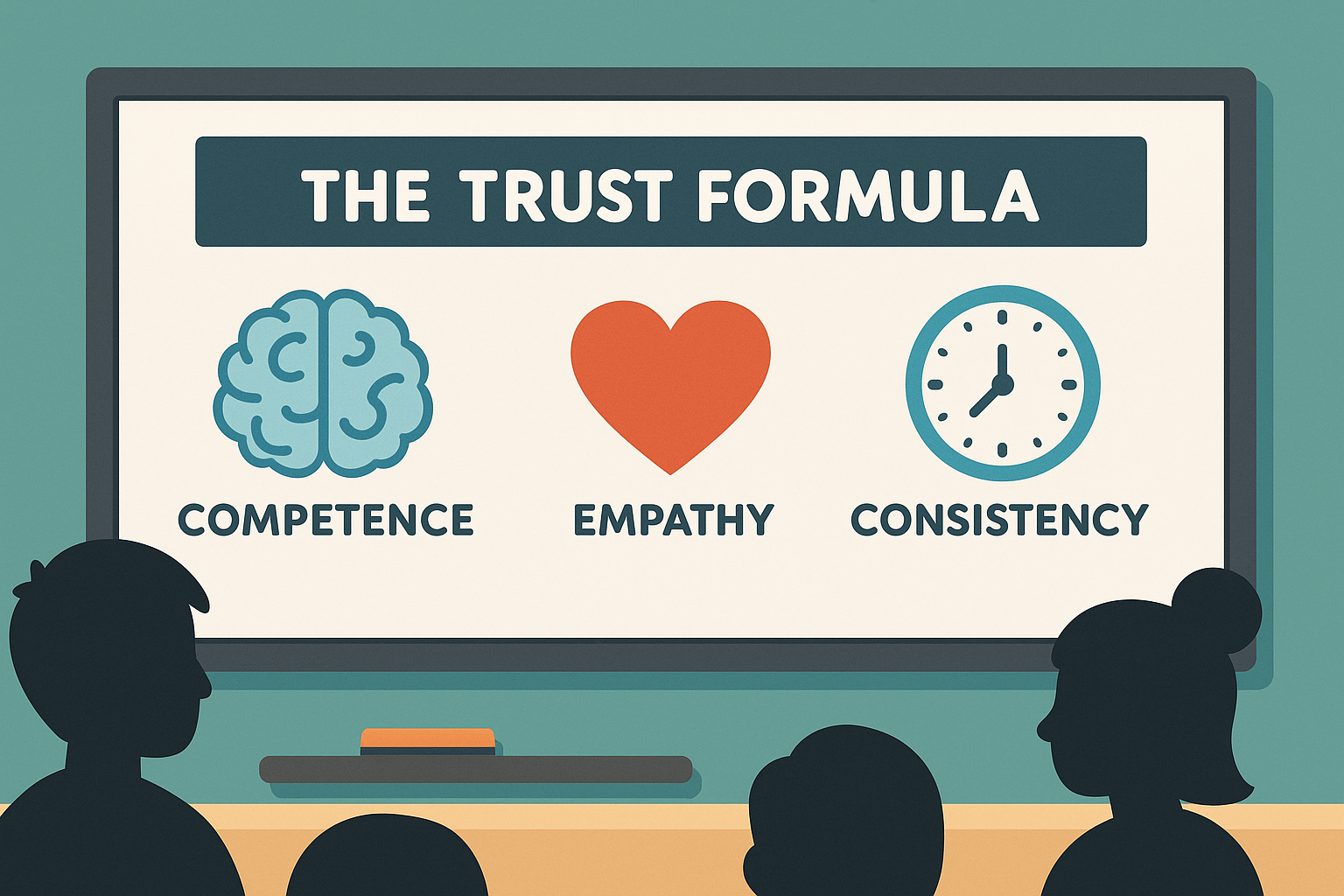
Trust grows from small actions repeated with honesty and care.
⚡ Handling Conflicts the Smart Way
Conflict isn’t always bad — it can mean people care.
The key is how you handle it.
The Rule: Talk to solve, not to win.
| Bad Team | Healthy Team |
|---|---|
| Avoids problems | Talks openly |
| Blames others | Fixes issues together |
| Hides mistakes | Learns from them |
💬 Try “I” Statements:
“I feel stressed when things are last-minute”
instead of
“You always leave things to the last minute.”
This changes blame into understanding.
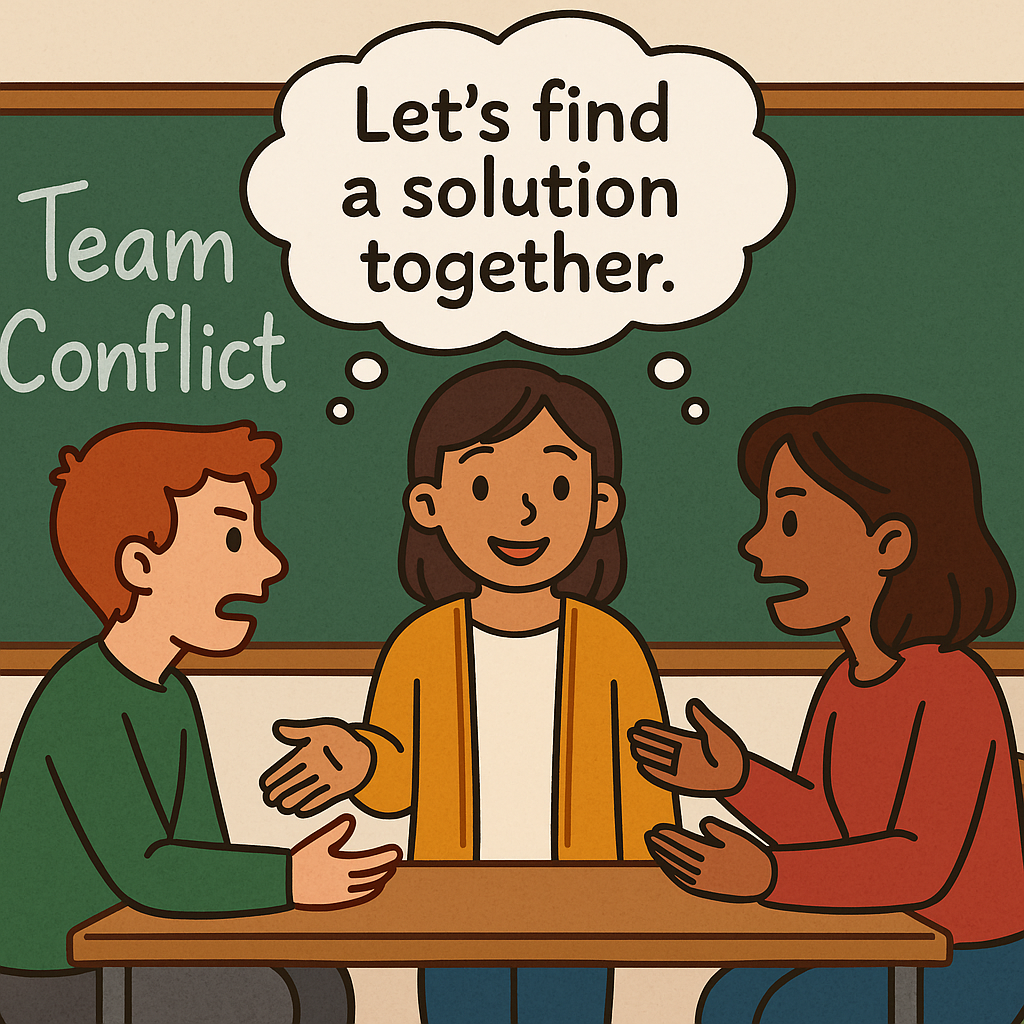
A healthy conflict is not about winning — it’s about improving together.
🌍 Diversity and Respect
In strong teams, people are different — and that’s good!
Some think fast, some think deep. Some are quiet, others expressive.
Differences create balance. Respect creates unity.
| Mistake | Better Way |
|---|---|
| “Everyone should think like me.” | “Different views make us smarter.” |
| “Quiet people don’t care.” | “They might just process differently.” |
| “I’m right, you’re wrong.” | “Let’s explore both sides.” |
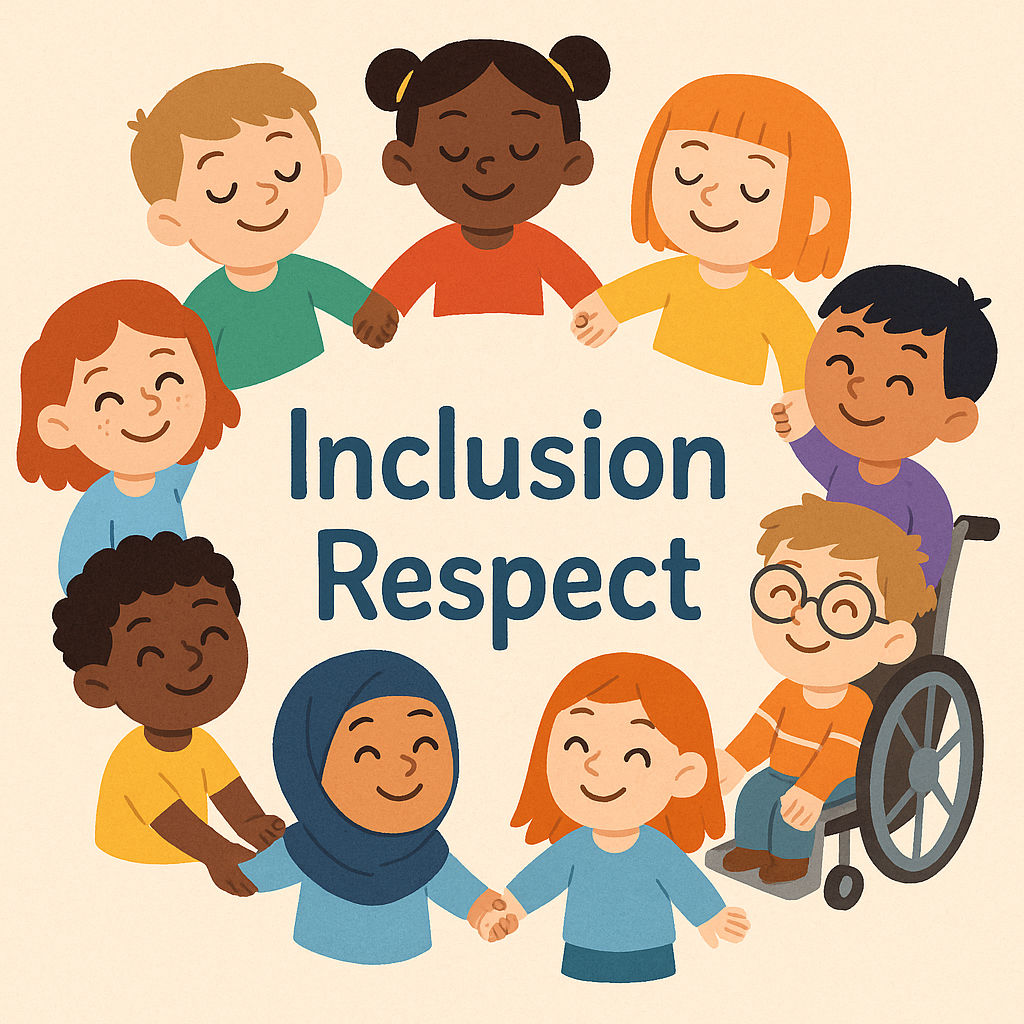
Diversity isn’t a problem — it’s the team’s superpower.
🧩 Mini Practice: The 1:1 Conversation
Good leaders talk — great leaders listen.
Try This Exercise:
Find a classmate or teammate and ask:
- What helps you work best in a team?
- What frustrates you most?
- How can I support you better?
Your job isn’t to reply — it’s to listen.
Because every answer helps you grow your emotional intelligence.
🌱 “Human First” Culture
A “Human First” leader treats people as people — not tools or titles.
Golden Rules of Good HR
- Respect others’ time.
- Give credit for effort, not just success.
- Celebrate small wins.
- Be fair, not just nice.
- Care first, then correct.
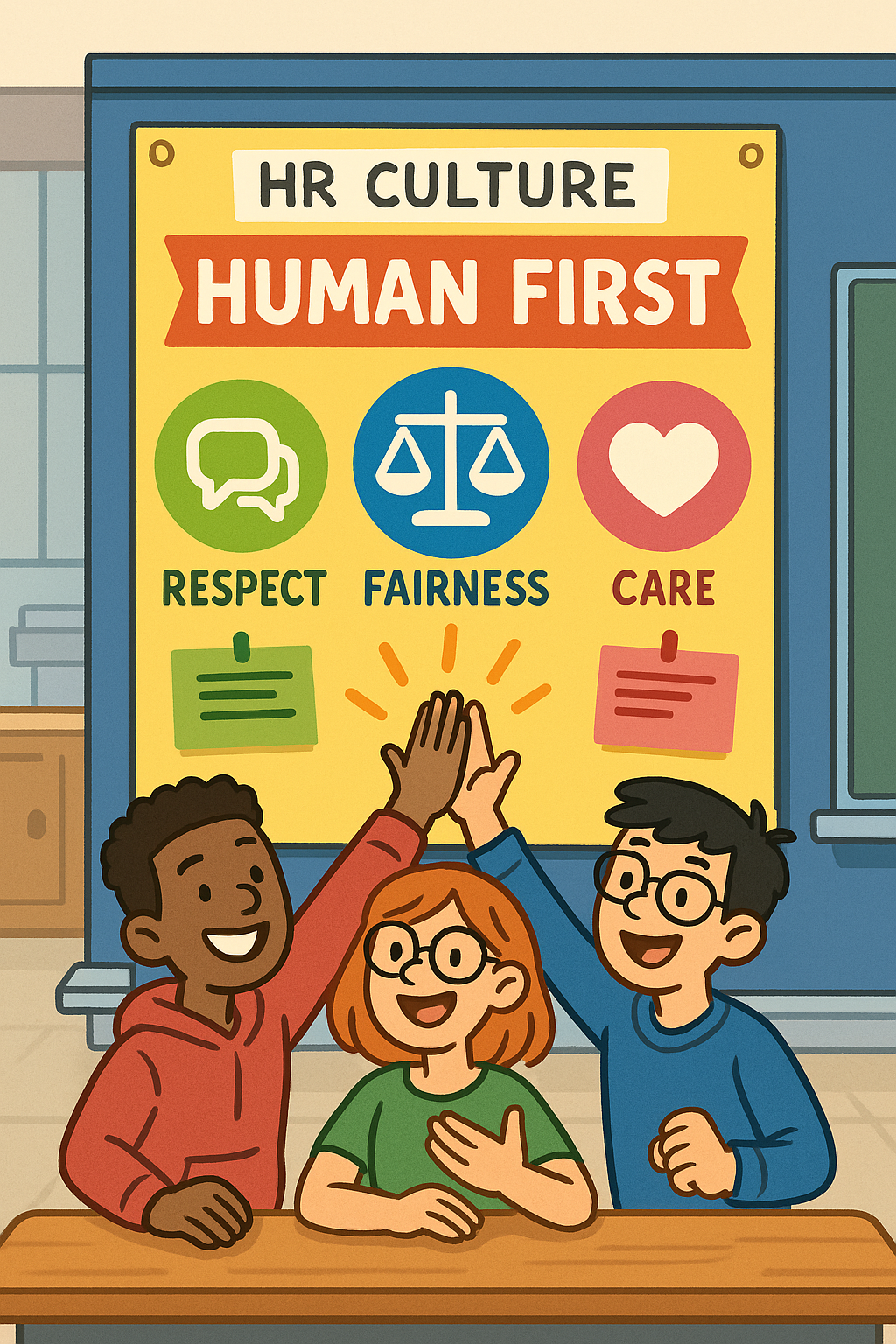
Great cultures don’t happen by policy — they start with people who care.
🗺️ Practice: My People Map
Draw yourself in the center. Around you, write:
- Who supports you most?
- Who do you help?
- Who inspires you?
This shows your network of support — your people map.
You’ll realize that success is rarely solo — it’s a group effort.
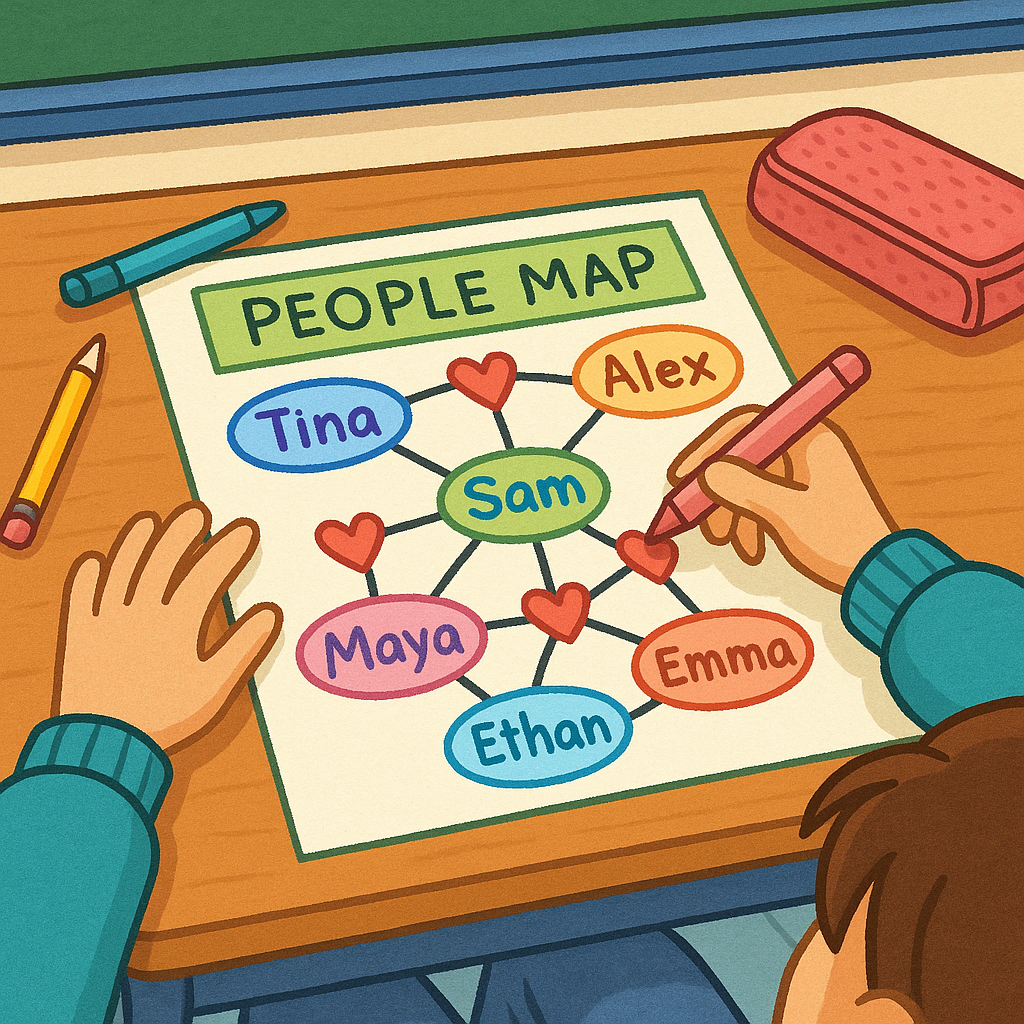
Every strong leader knows their people — and values them.
🧭 Final Reflection
HR and People Skills aren’t just for business — they’re for life.
They help you build trust, manage emotions, and bring out the best in others.
“The best teams aren’t managed — they’re cared for.”
When people feel safe, seen, and supported — performance follows naturally.
✅ Next Step
Congratulations — you’ve completed Month 5 of your journey!
Next up: Month 6 – Capstone & Certification, where you’ll bring together everything you’ve learned to run your own business case.
📝 Try this today
Write down three things that motivate you most — internal, external, and social.
Think of someone you trust and list what makes that trust work.
Draw your own People Map — who helps you, who you help, and who inspires you.
Lesson Progress
Module: marketing-management · +0% upon completion